 Russian for
foreigners [students, tourists e t c] including learning for interpersonal
communication and social intercourse in the Russian language, self-presentationtools, an elementary speaking and writing skills, overcoming the language
barrier. Level: Waystage User; Threshol. Learning based on unique methods in
consideration of native language of students. Duration of classes 1 hour 10
minutes five times a week including the practice in socio-cultural
environment.
Russian for
foreigners [students, tourists e t c] including learning for interpersonal
communication and social intercourse in the Russian language, self-presentationtools, an elementary speaking and writing skills, overcoming the language
barrier. Level: Waystage User; Threshol. Learning based on unique methods in
consideration of native language of students. Duration of classes 1 hour 10
minutes five times a week including the practice in socio-cultural
environment.
Please call: (0312) 69- 40 -15off; (0312) 69- 40- 16 off, 0771472892 mob. Bishkek, Kyrgyzstan
Business writing and speaking in English, public, social and interpersonalcommunications, self-presentation tools, linguistic thinking, language thinking and reasoning, overcoming the language barrier. Level: Intermedia +.
Lessons are conducted 4 or 5 times a week. Please contacts: (0312) 69- 40 -15off; (0312) 69- 40- 16 off 0771472892 mob or peacemakingschool@gmail.com
 School of Peacemaking and Media Technology,
involved in media development and hate speech studies, has looked into the
debates and comments in media and on the web that appeared after some Russian
and local media outlets, online newspapers reprinted the article titled On Lions
and Jackals with the subtitle
Central State Channel in Kyrgyzstan Promotes Nazism.
School of Peacemaking and Media Technology,
involved in media development and hate speech studies, has looked into the
debates and comments in media and on the web that appeared after some Russian
and local media outlets, online newspapers reprinted the article titled On Lions
and Jackals with the subtitle
Central State Channel in Kyrgyzstan Promotes Nazism.
The article was published on 19 May 2015 both on the websiteand in Moskovsky Komsomolets-Asia newspaper. It discussed inappropriate statements of Abdrakhman Alymbaev, former chairman of the National Union of Writers of Kyrgyzstan and public figure, in a TV programme Tooluktardyn Tok Shousu (Highlanders Talk Show) broadcasted on OTRK in December 2014. The host and guest of the programme were discussing the differences between ethnic groups residing in Kyrgyzstan. The author of the article in MK-Asia accused Abdrakhmanov and OTRK of "voicing Nazi ideas”.
Also, a 4-minute video demonstrating a part of this TV programme was uploaded to YouTube on May 19, 2015.
Experts of School of Peacemaking and Media Technologyfound more than 150 short articles, posts, comments that discussed this topic in media and on the web last week. The majority of publications contained hate speech, xenophobic clichés and stereotypes, dehumanising metaphors concerning both parties. When quoting public speakers commenting on this issue, journalists conveyed hate speech, which had negative impact on both the audience and commentators that were immediately involved in the debate and used offensive language.
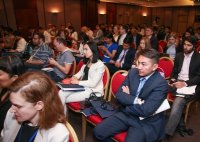
School of Peacemaking and Media Technology in Central Asia is launching a series of master classes, workshops and consultations for NGOs, media, journalists, activists and users on mastering the skills of digital, linguistic and speech security, development of organizational and individual strategies of cyber risk management, creation of collective and individual safety cards for working on the internet, designing of network security policy.
Highly professional team of experts, with vast experience in media sphere, information security, researches and monitoring, has developed a training course for Central Asia subject to local specifics, laws, level of internet penetration, activity of users, and network communications.
Tools of linguistic and digital security will help improve network communications in the digital age, teach how journalists, rights activists and other users can make themselves safe from any possible internet attacks, and from voice or visual traps of internet trolls, who interfere with personal network communications.
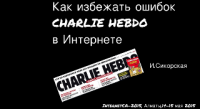 Reports and master
classes about it topics were presented at the Internet Forum by I. Sikorskaya
and V.Mamedov, expertsof the School
of Peacemaking and Media Technologies. Experts believe that new tools of
linguistic, speech, digital security and visual hygiene will help journalists,
rights activists and users improve their network communications in the digital
age.
Reports and master
classes about it topics were presented at the Internet Forum by I. Sikorskaya
and V.Mamedov, expertsof the School
of Peacemaking and Media Technologies. Experts believe that new tools of
linguistic, speech, digital security and visual hygiene will help journalists,
rights activists and users improve their network communications in the digital
age.
The study and master classes on linguistic, speech, digital security and visual hygiene were provided byat the 6thannual international forumDevelopment of Internet Sphere in Central Asia InternetCA-2015, which was held May 14-15 in Almaty (Kazakhstan).At the forum were also participated experts from Kazakhstan, Germany, Russia, Ukraine, Bulgaria and the OSCE.
The advanced course presented by Peacemakingschool’s experts goes beyond all existing methodologies since it offers the complex approach: from knowledge-based tools to technological skills and development of new network thinking in the digital age.
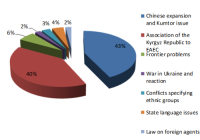 The Kyrgyz media celebrated World Press Freedom Day
2015 with relative freedom, under pressure from the political agenda, hate
speech, digital security challenges and cyber threats.
The Kyrgyz media celebrated World Press Freedom Day
2015 with relative freedom, under pressure from the political agenda, hate
speech, digital security challenges and cyber threats.
School of Peacemaking and Media Technology presented the report of freedom of expression in local media and on the internet. Experts emphasised the influence of social and political agenda on the media content. Analysis of the last four months identified 7 major topics covered mostly by the media. The majority of articles and posts were using hate speech. The leading topics covered in the media and on the internet were the Chinese expansion and Kumtor; almost the same number of stories, articles and posts raised the issue of accession of Kyrgyzstan to EAEC.
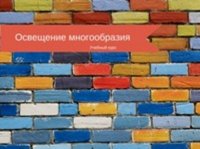 It is the first online handbook that
in Kyrgyzstan has never been.
It is the first online handbook that
in Kyrgyzstan has never been.
This course was developed by trainers and experts of the School of Peacemaking and Media Technology as part of the Encouraging Diversity Through Media project with financial support of the Freedom of Information Program of Soros Foundation – Kyrgyzstan.
The course is a training aid for journalists on how to cover ethnic, cultural and linguistic diversity in time of peace and conflict. Special sections provide detailed modern diversity terminology, aspects of diversity in laws and regulations of Kyrgyzstan, international practices and new approaches to diversity coverage. This course will be useful not only to reporters and editors, but also to media communication experts, teachers and students, and those who want to learn to write articles according to high ethical standards and norms.The lectures contained training aids used during trainingsessions on improving skills of journalists to cover diversity, producing team and multimedia coverage, as well as the modules on peacemaking journalism and destroying stereotypes, created as part of the Program to Reduce the Potential for Renewed Ethnic Conflict implemented in 2010-2013.
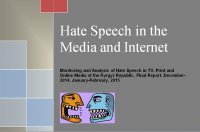 School of Peacemaking and Media Technology supported by the Canada Fund
for Local Initiatives (CFLI) has completed the media monitoring report "Hate
Speech in the Media and Internet’.
School of Peacemaking and Media Technology supported by the Canada Fund
for Local Initiatives (CFLI) has completed the media monitoring report "Hate
Speech in the Media and Internet’.
The report is based on the analysis of hate content carried in the surveyed broadcasting, print, online media outlets and social networks of the Kyrgyz Republic. All surveyed media were examined for ethnic stereotypes and xenophobia
In December 2014, January and February 2015, we performed content analysis of 47 media outlets broadcasted and published in Kyrgyzstan in Kyrgyz and Russian languages, including 33 newspapers, 11 online media outlets, 2 TV channels, and 1 social media outlet. The media outlets were selected for analysis based on their popularity rating among the audience, availability and distribution in all the regions of the country. Current media monitoring contained some additional indicators such as focus-group interviews in border areas and in geographically compact minority communities.
School of Peacemaking and Media Technology has presented its annual report "Hate Speech in the Media and Internet in Kyrgyzstan-2014”. The report was based on the analysis on hate content carried in the surveyed print, broadcasting and online media outlets published and issued in the country in Kyrgyz and Russian languages, which were classified according to perpetrators; victims; topics, genres, types of hate speech, stereotypes and clichés.
47 media outlets most popular among audience were selected for the study. Content analysis showed that more than one-third (36.1%) of media monitored contained hate speech. Almost 56% of all articles examined contained harsh and moderate hate language.
Classification by media types identified that in 2014 print media outlets included the majority of hate speech. 41.3% of newspapers monitored contained ad hominem attacks. Then follow online media, which 27.2% of hate speech rained down on the internet, and finally TV channelsgave of hate speech 1% only.
In 2014 compared to the previous year, general trends changed a little, and hate speech vocabulary showed some growth. Distinctive trend of 2014 were retranslating stereotypes and quoting by reporters of xenophobic connotations expressed by speakers in the political arena, media texts with dubious quotes with no editorial comments.
Author’s columns often contained harsh and moderate hate speech, direct and implicit forms for accusing an ethnic group of unwelcomed willingness to settle down in the region; creating negative image of an ethnic group by covering domestic conflicts and accusations of criminality.
Kyrgyz language newspapers top the list of hate speech producers; whereas online outlets top the list among Russian language media.
Hate speech in a wide range of topics
Hate speech creates negative public images of minorities, which proportion in media texts varies based on social and political events and media reflection. In 2014, hate speech was often contained in articles/stories covering discussions on historical and border topics, where ethnic groups were accused of criminality. Hate rhetoric was detected in topics covering the Kyrgyzstan’s reaction to relations between Russia and Ukraine and sanctions against Russia, participation of Kyrgyz nationals in the war in Syria, discussion about the Kyrgyz-Canadian JV Kumtor, investment projects of China in Kyrgyzstan, forthcoming accession of the country to the Eurasian Union.
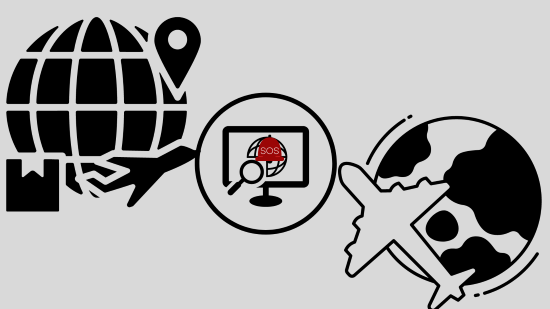
Состоялась онлайн конференция, на которой обсуждались риски транснациональных репрессий в работе активистов, медиаработников, юристов и…
Можете ли вы ответить на вопрос: что такое миротворческая журналистика или журналистика мира, как это принято говорить в международной практике?
Это – позитивная журналистика?
Это – смягчение конфликта за счет историй, где говорится о том, как власти решают проблему?
Или это – баланс фактов и мнений, построенных на беспристрастной хронологии освещаемого вами конфликта?
Ни один из трех предложенных вопросов не является миротворческой журналистикой, поскольку она строится на других принципах.
Смотрите видеоурок от Инги Сикорской, директора Школы миротворчества и медиатехнологий в ЦА, медиаэксперта, исследователя, журналистки.
Инга освещала разные конфликтные события, работала в Афганистане, написала ряд учебных пособий для журналистов и активистов, в том числе "Как женщине-журналисту делать визуальные репортажи из Афганистана",
"Как освещать многообразие и этнические конфликты,"Как журналистам избегать языка вражды в своих репортажах" и другие.
Инга проводит семинары по медиа, кризисным и миротворческим коммуникациям в Центральной Азии и других странах.
Смотрите видео-урок с примерами и пояснениями, а потом выполните упражнение.
![]() Группа независимого мониторинга,
экспертизы, анализа и образования Школы миротворчества и медиатехнологий в ЦА
оказывает услуги в НКО секторе, проводит консультации, экспертизу тренинги по
вопросам, связанным с медиасферой и публичным дискурсом.
Группа независимого мониторинга,
экспертизы, анализа и образования Школы миротворчества и медиатехнологий в ЦА
оказывает услуги в НКО секторе, проводит консультации, экспертизу тренинги по
вопросам, связанным с медиасферой и публичным дискурсом.
Мы проводим медиа-мониторинги, медиа-исследования, разрабатываем медиа-планы и стратегии, готовим медиа-аналитику по заданным тематикам, а также предлагаем следующие услуги:
·исследование медиа-сферы на основе мониторинга СМИ на предмет освещения по заданной тематике с использованием уникальной методики, анализ, выработка рекомендаций;
·полный медиа-мониторинг и анализ выделенных публикаций по различным индикаторам, в зависимости от задачи– сбор всех материалов об объекте мониторинга по максимально широкому списку с помощью специальных электронных систем мониторинга, ручного поиска и интеллектуальных инструментов для анализа (кыргызский, русский, английский языки);
·по ограниченному медиа-списку – поиск публикаций об объекте мониторинга по определенному списку СМИ (обычно наиболее авторитетные, популярные, значимые с точки зрения достижения ЦА, издания);
·аналитические обзоры по заданной тематике;
·разработка моделей информационно-просветительских кампаний( интеллектуальная логистика, исследование и анализ ситуации, планирование мероприятий, определение аудитории, стратегия, сбор информации, анализ, разработка послания, определение ожидаемых результатов, тестирование кампании, разработка публичных мероприятий, отслеживание результатов кампании);
·разработка медиа-планов, мониторинг и анализ медиа-активности, кризисный медиа-мониторинг, архивный/ретроспективный медиа-мониторинг;
·консультации по созданию медиа-кампаний;
·тренинговые/обучающие услуги, мастер-классы: разработка тематики и программы тренинга;
·проведение медиа-тренингов/мастер-классов;
·информационные услуги (создание релизов, адаптация пресс-релизов под веб-публикацию. линкование, ссылки, теги и т д);
·разработка сценария и создание видео- и аудио-интервью, тезисы;
·подготовка спикеров для пресс-конференций, разработка сценария пресс-конференции и брифингов, тезисы их выступления;
·разработка медиа-плана для участия, выступающего в тематических программах по социально-значимым вопросам;
·редактирование и обработка текстов (кыргызский, русский, английский языки).
Вышеперечисленные услуги осуществляются по договору оказания платных услуг в некоммерческом секторе и рассчитаны в соответствии с калькуляцией платных услуг на текущий год. За подробной информацией обращаться на peacemakingschool@gmail.com или написать сообщение на Фейсбук https://www.facebook.com/Alinapeacemaker